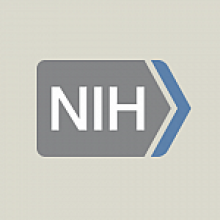Tuesday, October 17, 2017

NIPS Workshop on Machine Learning for Health (NIPS ML4H 2017)
What parts of Healthcare are Ripe for Disruption by Machine Learning Right Now?
A workshop at the Thirty-First Annual Conference on Neural Information Processing Systems (NIPS 2017).
Friday, December 8, 2017
Long Beach Convention Center, Long Beach, CA, USA
https://ml4health.github.io/2017/
Please direct questions to: [email protected]
NOTE 2017/09/28: NIPS 2017 workshop registrations are now sold out. If you have not registered you may still submit a paper. During submission, please indicate an author that will attend or could attend in the unlikely event that more registrations became available as a "corresponding author."
DATES
- Mon Oct 30, 2017: Submission deadline at 11:59pm
- Fri Nov 10, 2017: Acceptance notification (Poster or Spotlight+Poster)
- Thu Nov 16, 2017: NIPS deadline to cancel registration (with full refund)
- Fri Dec 01, 2017: Final papers posted online (with permission)
- Fri Dec 08, 2017: Workshop
ABSTRACT
The goal of the Machine Learning for Health Workshop (NIPS ML4H 2017) is to foster collaborations that meaningfully impact medicine by bringing together clinicians, health data experts, and machine learning researchers. We aim to build on the success of the last two NIPS ML4H workshops which were widely attended and helped form the foundations of a new research community.
This year’s program emphasizes identifying previously unidentified problems in healthcare that the machine learning community hasn't addressed, or seeing old challenges through a new lens. While healthcare and medicine are often touted as prime examples for disruption by AI and machine learning, there has been vanishingly little evidence of this disruption to date. To interested parties who are outside of the medical establishment (e.g. machine learning researchers), the healthcare system can appear byzantine and impenetrable, which results in a high barrier to entry. In this workshop, we hope to reduce this activation energy by bringing together leaders at the forefront of both machine learning and healthcare for a dialog on areas of medicine that have immediate opportunities for machine learning. Attendees at this workshop will quickly gain an understanding of the key problems that are unique to healthcare and how machine learning can be applied to addressed these challenges.
The workshop will feature invited talks from leading voices in both medicine and machine learning. Invited clinicians will discuss open clinical problems where data-driven solutions can make an immediate difference. The workshop will conclude with an interactive panel discussion where all speakers respond to questions provided by the audience.
From the research community, we welcome short paper submissions highlighting novel research contributions at the intersection of machine learning and healthcare. Accepted submissions will be featured as poster presentations and (in select cases) as short oral spotlight presentations.
PAPER SUBMISSION INSTRUCTIONS
Researchers interested in contributing should upload short, anonymized papers of up to 4 pages in PDF format by Monday, October 30, 2017, 11:59 PM in the timezone of your choice.
Please submit via our ML4H EasyChair website: https://easychair.org/conferences/?conf=nipsml4h2017
Papers should adhere to the NIPS conference paper format, via the NIPS LaTeX style file: https://nips.cc/Conferences/2017/PaperInformation/StyleFiles.
Workshop papers should be at most 4 pages of content, including text and figures. Additional pages containing only bibliographic references can be included without penalty.
Relevant Topics
Submitted papers should describe innovative machine learning research focused on relevant problems in health and medicine. This can mean new models, new datasets, new algorithms, or new applications. Topics of interest include but are not limited to reinforcement learning, temporal models, deep learning, semi-supervised learning, data integration, learning from missing or biased data, learning from non-stationary data, model criticism, model interpretability, causality, model biases, and transfer learning.
Peer Review and Acceptance Criteria
All submissions will undergo double-blind peer review. It will be up to the authors to ensure the proper anonymization of their paper. Do not include any names or affiliations. Refer to your own past work in the third-person.
Accepted papers will be chosen based on technical merit and suitability to the workshop's goals. All accepted papers will be included in one of two poster presentation sessions on the day of the workshop. Some accepted papers will be invited to give short oral spotlight presentations at the workshop.
Registration and Attendance
To promote community interaction, we hope at least one presenting author has registered and can attend the workshop. However, because NIPS workshop registration has sold out, we encourage all researchers to submit a paper regardless of their registration status.
Accepted papers that cannot attend will at least be listed on our website. It is unlikely that we will be able to create new registration spots for accepted papers, but we are exploring possibilities. If your paper is accepted and you cannot attend due to registration or other issues, please contact us after you are accepted and we'll find solutions on a case-by-case basis. Acceptance notifications will go out a few days before the NIPS deadline for full refunds.
Copyright for Accepted Papers
This workshop will be informally published online but not officially archived. This means:
- Authors will retain full copyright of their papers.
- Acceptance to NIPS ML4H 2017 does not preclude publication of the same material in another journal or conference.
We encourage (but do not require) accepted papers to be posted on arXiv. With author permission, we will post links to accepted short papers on our workshop website.
Our workshop does allow submission of papers that are under review or have been recently published in a conference or a journal. Authors should clearly state any overlapping published work at time of submission.


